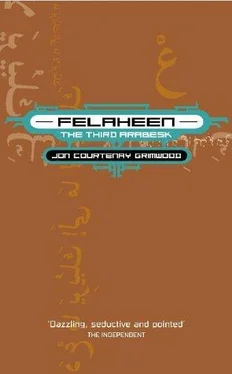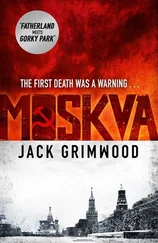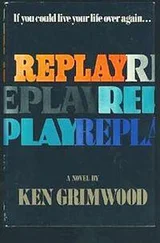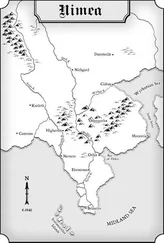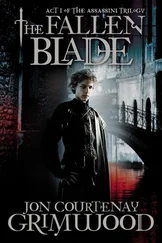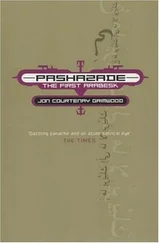The fox coughed, its bark close to laughter.
Just because something is chaotic doesn't make it random. Raf remembered a man in a white coat telling him that. Years before. The term phase space kept cropping up but the surgeon had been talking about his brain.
"Are you all right?"
"Ibrahim was family?"
Two questions asked together, voices male and female but both worried, though the man at least glanced away from the tears that had sprung into Raf's eyes. Wiping them clumsily with the back of his hand, Raf laughed. The small embarrassed laugh of a man who has let emotion get the better of him.
"My mother's cousin," he said with a small shrug. "I'm fine but I know she will be upset."
To make up for Raf's disappointment the woman insisted on showing him where the office had been, walking slowly so that he could keep up with her in his crude shoes. Kairouan was Ifriqiya's most important city, she told him on the way. A place of real learning, unlike Tunis, with its crowds of nasrani and unsavoury way of life. If he was lucky he might find a job at the market.
From Kairouan to Tunis was maybe 150 kilometres by road, perhaps less; although, as no railway reached the city and Raf had been forced to leave at M'aaken to catch a bus, the distance would be more than this by the time he returned to M'aaken and rejoined one of the local services for Gare de Tunis.
"There you go," she said, pointing to a window above a dusty shop front. "That was where your cousin used to work. We had to reach his office from the back . . ."
Raf thanked her, then did so again, leaving her standing on the pavement a hundred paces from her own shop as the first customers of the day came out to buy pastries and fruit for breakfast.
On his way to catch the return bus to M'aaken, Raf detoured into an alley that ran parallel to that side of Rue Ali bel Houane and walked slowly along the narrow street, counting openings and looking at signs painted directly onto the peeling length of wall. He found the one he wanted halfway down, faded and partly lost under a smear of concrete that someone had used to patch a hole in the plaster.
Isaac & Sons: Commissioners for Oaths. The only words he'd been able to read from the letter in Lady Nafisa's hand. The door to the office was bolted from the inside and had an extra padlock hooked through a rusting clasp at waist height, as if locking an empty office from within might not be enough. Next to the door was an odd cast-iron blade set into a small arch at ground level, which Raf eventually worked out was for scraping mud from boots during the winter months.
"Talk to me," said the fox.
All Raf gave him was an angry shake of the head. He knew how absurdly easy it always was to give in. To welcome Tiri back and make it speak to him or, rather, make Tiri speak for him, because that's what the fox did, they both understood that now.
And Raf wanted the cold deep in his bones to go away and the memories that flooded his veins like iced water to vanish. Most of all he wanted to spend the rest of his life, however long that was, knowing that when he woke each morning the room in which he slept would not have changed colour, that no hedges would have grown to maturity from seedlings outside his window, that the season when he awoke would be the same as when he shut his eyes.
If banishing the fox from his head was the price Raf had to pay to achieve this, then the fox would have to go. And it had been a stupid idea of Tiri's anyway to go ask advice of a lawyer who was already dead.
Sometime around noon, with the sun burning down on the outside of Sally's airless carriage, three men wearing combat trousers, khaki T-shirts and checkedkufiyyehcame by to throw passengers off the stalled train. At least that's what Sally assumed was happening given that the nuns suddenly stood up and began to collect together their baskets, wrapping what was left of the salami inside its white cloth and burying the package at the bottom of the biggest basket, as if bandits might have stopped the train to steal their food.
"I find out what's happening," said the boy and nodded to Sally, pointedly ignoring the nuns as he jumped down onto the track. Sally watched him walk away, dodging between exiting passengers until he disappeared from sight. After a while she realized he probably wasn't coming back.
Everyone waited in the sun for two hours beside the train. And then its diesel engine fired up and the abandoned carriages began to reverse slowly away from where the passengers still sat, picking up speed as they went. True to type, the nuns immediately formed a small circle with their baskets in the middle, as if they were the wagons and their luggage the settlers waiting for an Indian attack. Occasionally one or another would glance over to where Sally stood, too nervous to sit, but that was all.
As dusk arrived so did the soldiers. Teenage conscripts with hard haircuts and soft eyes, the clash between appearance and their friendliness not yet kicked out of them. They carried stubby submachine guns stamped out of cheap metal which they played with endlessly, flicking the safety catches and snapping out quarter-curve magazines only to snap them back again. The conscripts seemed to have no more idea of why they were there than Sally did.
Night never really came. The moon was too bright and, though air convected and a warm wind blew from the distant sea and a whole orchestra of insects finally fell silent, darkness stayed away. Sometime after midnight a new train rolled up. It looked much like the old train but dirtier, with carriages that were separate, unlinked by any corridor. The man driving wore combat fatigues, with an AK49 slung across his back.
"Great," said Sally. No corridor meant no loos. And that meant six hours locked in a carriage with an uncertain stomach.
"Need help?"
Sally turned to find a barefoot boy wearing a samurai topknot, the baggiest Fat Boys she'd ever seen and a leather choker with a plum-sized amber bead tied round his neck. The orange lettering across his T-shirt proclaimed Rock and Ruin. And underneath in much smaller letters was a line that read archaeologists do it in spades.
Sally sighed. "Help with what?"
"Getting on the train." The blond boy pointed at her rucksack, then nodded to the nearest carriage which stood empty with its door still shut. It was, Sally suddenly realized, going to be hard enough clambering up without having to drag her luggage after her.
"Yeah," she said, "that would be good."
Still smiling, the boy pushed out his hand and announced, "I'm Per."
"Sally," said Sally without thinking about it and remembered too late that she'd meant to travel as someone else.
Together they clambered up into a dusty-smelling carriage and Per yanked down the blinds on the side where everyone stood, blocking out moonlight and the shuffling crowd beyond. For about five minutes it looked like this might work, as compartments either side filled with noise but no one tried their door.
And then, with the train shuddering as its diesel fired up, the door was jerked open and a close-cropped skull gazed up at them. Whatever doubts the conscript felt about being faced with two nasrani lost out to his need for a seat. Pulling himself up, he was about to shut the door when someone shouted his name.
Five conscripts tumbled in after him, pushing and swearing until they saw Sally by the far window with Per opposite.
"Hi," said Sally and six faces blinked as one. They were kids she realized, only a few years younger in age but a dozen in experience, uncertain how to react to some foreign girl in men's clothes. Their problem, Sally decided, not mine, and nodded to one of them to shut the door.
Читать дальше
